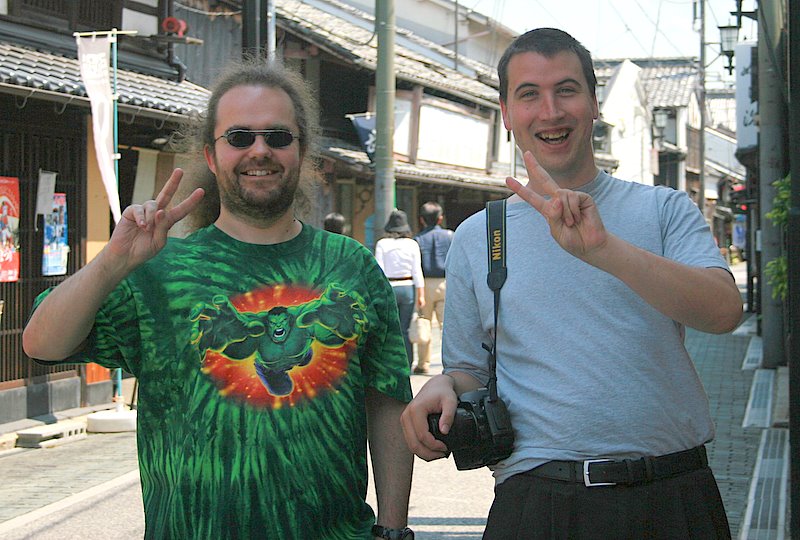Having just come back from YAPC::NA I thought I would write up some of my observations on the difference between this conference and the European ones I’ve attended over the past few years. I haven’t been to an American YAPC since 2001 in Montreal.
1. They had a pre-conference dinner
This surprised me as I thought that the last thing the organisers of the conference wanted to do the night before was to go out and eat Mexican food. I did enjoy this. Well, the only part I didn’t enjoy was the strange singing Mexican who wailed a love song into my ear after dinner – but it was certainly a different experience.
2. They didn’t name the rooms after any of the sponsors
I’m not really sure why they didn’t do this as I know that they did have some really good support from sponsors. Maybe they thought it would make it harder for people to find the various rooms or maybe it just didn’t occur to them that this could be something that the sponsors might like.
3. The conference bag didn’t contain a pen or paper
I suppose I’m still old fashioned as I like to write things down during the conference. If I make notes using my laptop I can become distracted and end up reading my email instead of listening to the talk.
4. They didn’t print conference proceedings
There was a booklet produced that contained location information, the schedule, sponsor information and talk abstracts but this didn’t contain the same level of detail that the European ones do. Having been involved in organising a YAPC I know that getting slides or papers in advance from speakers is very difficult and that it is also quite expensive to have these printed out. I didn’t miss these.
5. The auction was held during the conference dinner
I really liked this. It made the auction much more relaxed and also it didn’t seem to run as long at the European ones. The only disadvantage I could see was that it was easier to just sit and chat and ignore the auction.
6. They held a silent auction
One of the dullest things about the European auction is the selling of multiple copies of books and t-shirts. At the American conference a lot of these items were sold during the dinner via a silent auction. This still seemed to raise quite a bit of money and no-one had to sit through the tedium that usually goes along with this.
7. They held a “Town Hall” at the end of the conference
This was a meeting that allowed attendees to ask questions of the conference organisers and The Perl Foundation. I didn’t really like this as it didn’t end the conference on a positive note. The meeting went on for quite some time and people just started to drift away. I left before the end as I became much too cold in the air conditioned room.
8. They had a job fair
I know that in Birmingham last year that they had an expo / job fair but I haven’t quite gotten used to this idea yet. I did spend some time chatting to the various companies at the job fair as I was curious about their use of Perl even though I wouldn’t really be a suitable job candidate for them.
9. They didn’t announce the venue of the next conference.
At the end of a European YAPC they announce where the next conference is going to be held. This is a really positive way to end a conference and I thought it was a pity that they didn’t do this in America – though I don’t believe that the next venue has been chosen yet.



July 13th, 2007 at 1:45 pm
Firstly can I say how delighted I am to hear that you found our paper of value. As you outline the situation reseached we found e-mail being used as a very effective “weapon of war” between team members based on geographical location. As as Software Engineer I understand how we as professionals like to get around procedures. That said the situation we describe was of very serious nature and had to be addressed. Once the documented policy was in place and the issue discussed with all the relevant parties it had a very positive impact on the teams operation.